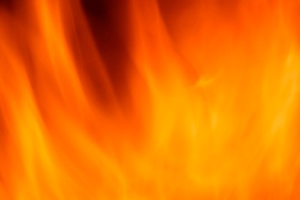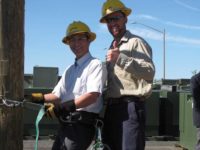 In the wake of a house fire that killed a mother and eight children in Kentucky January 30, Electrical Safety Foundation International (ESFI) is offering tips on how other can avoid similar fire tragedies.
In the wake of a house fire that killed a mother and eight children in Kentucky January 30, Electrical Safety Foundation International (ESFI) is offering tips on how other can avoid similar fire tragedies.
Police said the fire in the Kentucky incident started when a combustible material fell against an electric heater in a bedroom as a family slept. La Rae "Nikki" Watson and eight children, ages 4 to 15, perished in the blaze, while 36-year-old Chad Watson and his only surviving child, 11-year-old Kylie Watson, were hospitalized with injuries.
The incident was not an isolated one; the National Fire Protection Association (NFPA) says that having heating equipment in close proximity to things that can burn accounts for more than half of all home heating fire deaths. Heating equipment in general is the second leading cause of home fires in the United States, with more than 65,000 home fires attributed to heating equipment each year. These fires result in hundreds of deaths, thousands of injuries and millions of dollars in property damage.
Further, portable electric space heaters can be a convenient source of supplemental heat for your home in cold weather, but they can also increase the risks of fire or electric shock if not used properly. NFPA estimates that the risk of fire from space heaters is 3 to 4 times greater than from central heating equipment.
Safety should always be a top consideration when heating the home. The ESFI offers the following tips to help you stay safe and warm this winter:
- Have a qualified professional install heating equipment according to the local codes and manufacturer’s instructions.
- Heaters must be kept at least three feet away from anything that can burn, including bedding, papers, clothing, and rugs.
- Make sure your space heater has a label indicating that it has been approved by a recognized testing laboratory.
- Before using any heater, read the manufacturer’s instructions and warning labels carefully.
- Inspect the heater’s cord periodically for damage such as cracked or broken plugs or loose connections. Do not use a heater with a damaged cord.
- Never leave a space heater unattended. Turn it off when you leave the room or go to sleep. Do not leave children or pets unattended in a room with a space heater.
- Space heaters are only meant to provide supplemental heat and should never be used to warm bedding, cook food, dry clothing or thaw pipes.
- Install smoke alarms on every floor of your home, inside each bedroom, and outside all sleeping areas. Remember to test them once a month.
- Locate space heaters out of high traffic areas and doorways where they may pose a tripping hazard.
- Plug space heaters directly into a wall outlet. Do not use an extension cord or power strip, which could overheat and result in a fire. Do not plug any other electrical devices into the same outlet as the heater.
- Place space heaters on level, flat surfaces. Never place heaters on top of furniture.
- Always unplug and safely store the heater when it is not in use.
A proactive approach to heater safety will help keep your home and family safe and warm when it’s cold outside. To help educate consumers about the importance of using space heaters properly, ESFI has developed a variety of new tools and resources, including an animated space heater safety video that is now available on ESFI’s website, www.esfi.org.





